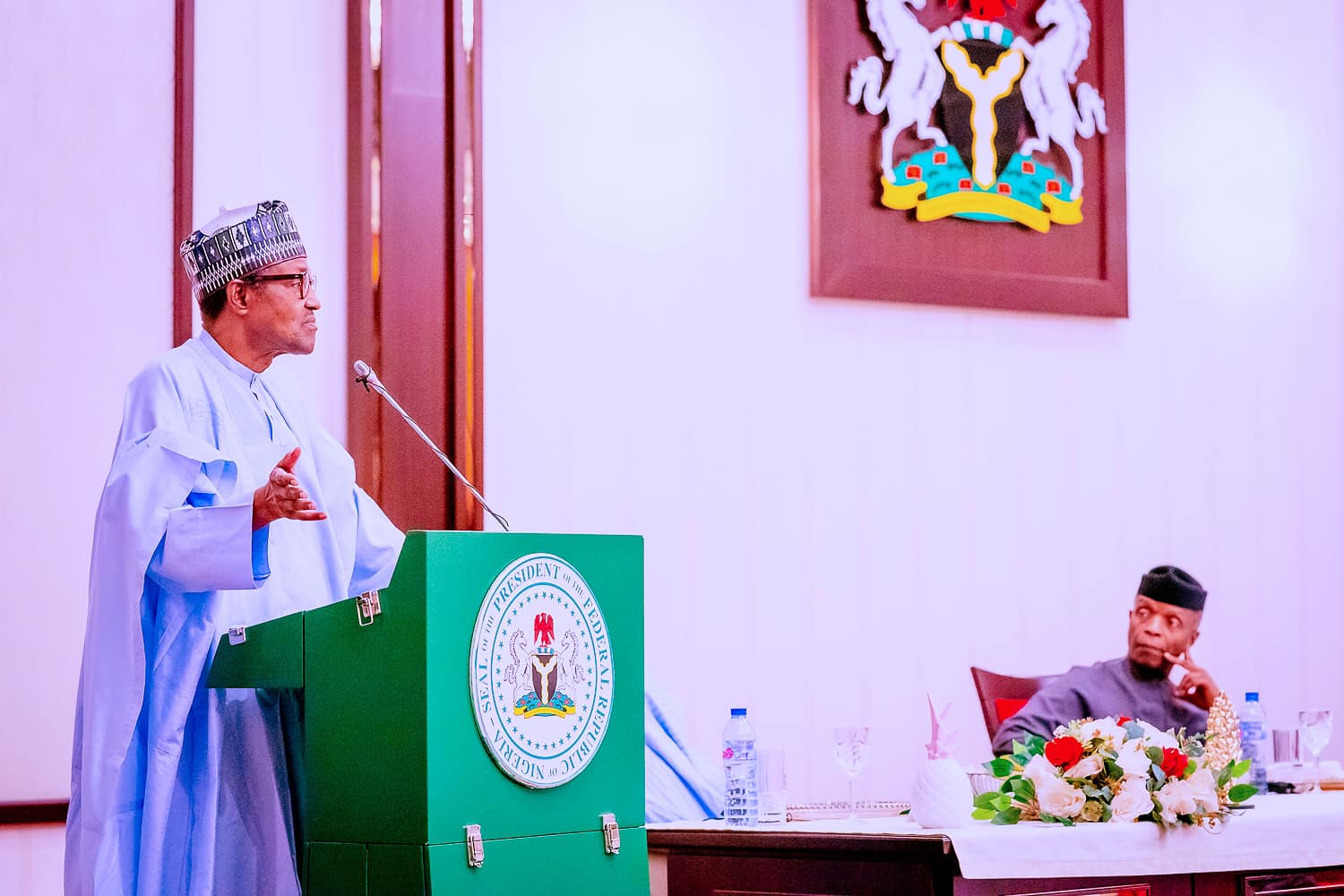Headlines
2023: Buhari asserts that INEC has no excuse for being unprepared

President Muhammadu Buhari says that the Independent National Electoral Commission (INEC) has no reason not to hold free, fair, and trustworthy elections in 2023 because he has given INEC everything it has asked for.
The United States Institute of Peace (USIP), the International Republican Institute, the National Endowment for Democracy, and the International Foundation for Electoral Systems jointly hosted an interactive session titled “A Conversation with President Muhammadu Buhari of Nigeria,” during which the president made this disclosure.
He reaffirmed his faith in INEC’s electoral readiness for 2023.
In response to a query on the Commission’s readiness, Buhari stated, “INEC is ready because I made sure they were given all the resources they asked for because I don’t want any excuses that they were denied funding by the government.”
“Since 2015, our election process has gotten better and better.” To the pleasure of candidates and voters, by-polls and off-season elections in the states of Edo, Ekiti, Anambra, and Osun were conducted beginning with the 2019 general elections.
That is what we anticipate for 2023. The credibility of the elections can be further increased by the International Community’s participation as an observer, making it unimportant whether or not the candidates and political parties will accept the results.
In the meantime, the president said on Friday in Washington, D.C., that the agricultural revolution in Nigeria had led to the creation of more than 13 million direct and indirect jobs in the last 7.5 years.
The leader of Nigeria warned western countries not to get rid of fossil fuels too quickly in order to keep the climate stable.
In addition, he said that Nigeria’s economy has grown well over the previous two quarters, despite the bleak outlook for the world economy and the conflict in Ukraine.
Additionally, President Buhari urged the world media to be more impartial in its coverage of Nigeria and warned western countries against the careless issuing of travel recommendations for the country.
READ ALSO: Nigeria is fortunate to have you as its leader – Tinubu tells Buhari
He informed the world that, despite the casual acts and attitudes of some of its friends and supporters, Nigeria is winning the war on terrorism and making tremendous strides in addressing the dangers to the safety and existence of Nigeria and the sub-region.
Nigeria’s leader asked the U.S. to do more to improve governance in the West Africa sub-region. He said that democracy is in danger after Mali, Guinea, and Burkina Faso lost their democratic governments.
When talking about what his government has done to improve Nigeria’s economy since he took office in 2015, the President said that the Central Bank of Nigeria’s targeted agricultural interventions have helped the country switch from being a net importer of rice, which is a staple food there, to being able to produce its own rice.
The establishment and operation of our fifty (50) integrated rice mills were funded by the same scheme.
‘‘
It has also given money to nearly 700 large-scale agricultural projects, made sure that nearly 6 million hectares of land are used for farming, and helped more than 4.5 million smallholder farmers.
He said that because of the agricultural revolution, more than 13 million direct and indirect jobs have been made.
In addition, President Buhari said that Nigeria was better prepared to handle the systemic shock brought on by both COVID-19 and the Russia-Ukraine war on global food supply chains and the resulting price spikes thanks to the focus on the agricultural sector. He was speaking to the Washington, D.C., community of global thought leaders and democracy advocacy groups.
He went on to say that the country’s capacity in the agro-allied sector has grown, making it better at maximising production yields and minimising losses after harvest.
“The non-oil sector continues to be the engine of our economy, and I hope that succeeding administrations will build on the successes we have achieved under my direction.”
You will concur with me when I say that the Russia-Ukraine war has forced many economies to implement changes and change their policies to address the difficulties the conflict has brought about.
In order to make the power value chain more efficient, he said, “In this area, we are paying more attention to energy transmission and distribution by working closely with global companies like Siemens.”
